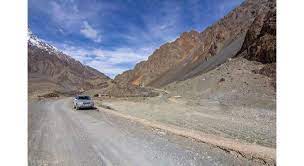Nusrat Bibi
The National Highway Authority (NHA) is working on a road extension project of Kalash valley, Ayun in which the original design of the road is modified to accommodate local demands and now the nearby most precious Botanical Garden and related plants and animals’ life is in intense threat to be consumed in this road.
While the barren land on both side of the road belongs to a person who already has worked in the plants and animals saving department of Wildlife and Environment KP is not utilized to save this worthy garden and biodiversity. The NHA design mistake reflects the ignorance of initial EIA by both Environmental Protection Agency (EPA) and NHA in which the fragile garden and related biodiversity is in stake.
Although Environmental Impact Assessment (EIA) is an integral part and parcel of the development programs/projects elsewhere in the world but in Pakistan neither it considered mandatory nor it conducted in a professional way and that’s why we are facing environmental demolition everywhere in our country.
The scenic values of our cities and villages are diminished and our worthy heritage and land are in intense threats from the development pressure. Our precious natural resources are endangered and suffering as a whole from the weaker policies of the government.
Our mountains are bulldozed to construct or extend roads and excavated to extract minerals and other natural wealth due to which our mountains show the sick health syndrome and has been strayed from their primary functions of adjusting climate and weather. While our rivers are dredged to take out sand and stones which highly destroys the fish and other aquatic life habitats and causing mortality and economic loss as well as curtailing the functions of rivers in water cycle, irrigation and above all in buffering against the flood.
Trees and vegetation are cut down to construct homes and other infrastructure which not only deteriorates our genetic pool for biodiversity but also has seriously endangers our wildlife, water aquifers, water and air quality, increases heat and disturbs water cycle and cloud formation along with food chain disruptions.







